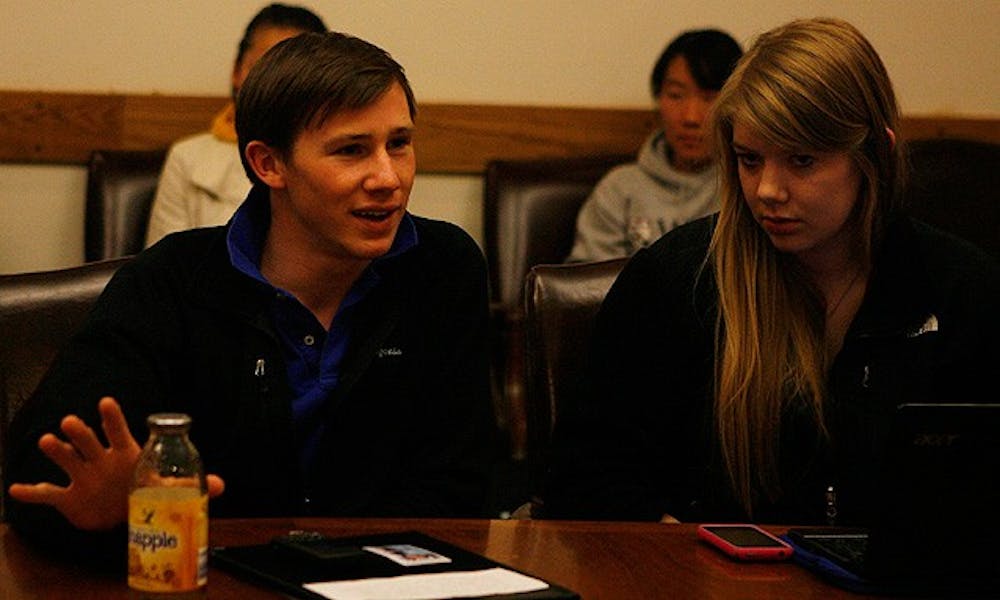Leaving a chair in a dormitory hallway may be more damaging than you think.
This is one of the actions that results in an “excessive cleaning charge” under the residential group assessment process, causing residential communities to lose points in the evaluation.
At Campus Council’s meeting Thursday night, members continued an ongoing review of the residential group assessment process. The focus was on two aspects of the rating process—excessive cleaning charges and community interaction.
With regard to evaluating excessive cleaning charges, members deliberated on whether to rate groups based on the dollar amount of charges acquired, or the number of billable hours of maintenance work put in. Using billable hours accounts for inflation of charges and allows groups to see the effect of their messy habits on housekeeping employees, council members said.
“I think [using billable hours] very nicely introduces the human element,” said Facilities and Services Chair John Pryor, a junior who served as co-chair of the Residential Group Assessment Committee this year.
Council members also discussed the format of the scoring system.
“The main problem with the RGAC scores before was they were too confusing,” said Programming Chair Ben Goldenberg, a sophomore.
Many noted that some excessive cleaning charges acquired may be outside of a group’s control, or due to factors like leaving a chair in a hallway. Selective House Council President Kait Nagi, a senior, said there should be a certain number of billable hours allowed without a negative evaluation.
Members also discussed the community interaction—previously called quadrangle interaction—section of the evaluation. This section requires groups to hold a certain number of events per semester that are free and open to the public.
“The purpose of giving a group space is to allow them to utilize it in ways other than just living there,” Goldenberg said.
Debate focused on the number of events each group is required to facilitate. Most members thought four events per semester was too demanding, but that three was reasonable.
“With an increase in quantity, you’re going to have a decrease in quality,” said at-large member Tommy O’Malley, a junior.
Council members also discussed whether the evaluation should focus heavily on attendance at each event. Public Relations Director Christine Hall, a junior and member of Towerview, said an emphasis on attendance is too subjective of an evaluation.
“If one person came to that event and got so much out of it, then it’s worth it,” she said.
Vice President Alex Reese, a junior, noted that attendance matters, but that the amount of advertising effort put forth by the group is more important.
In other business:
Reese said the council is working with lawyers to determine whether the University can implement gender-neutral housing. He noted that the council is pushing forward with truly co-ed housing, as co-ed blocking introduced two years ago has not worked as planned.
Get The Chronicle straight to your inbox
Signup for our weekly newsletter. Cancel at any time.

